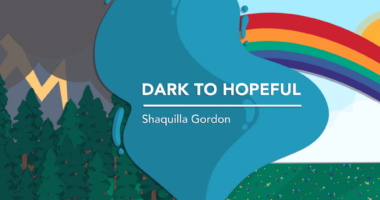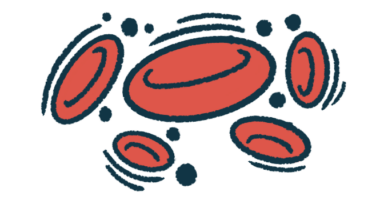When my medical knowledge leads doctors to assume I’m in their field
As I appreciate their respect, I sometimes daydream about the possibilities

I recently accompanied my grandmother to one of her doctor appointments because she’d expressed feeling nervous and having boundaries when it came to her health. I asked the doctor questions, relayed his message in simpler terms to my grandma, and spoke up as her advocate. The doctor was impressed by how I handled the situation and asked if worked in the medical field.
It wasn’t the first time I’d been asked that question, nor the second. I’m assuming my medical knowledge and confidence make others easily assume that I work in the field.
I felt the doctor’s question came from a place of respect, as if we were colleagues talking about our profession. When I answered that I don’t work in the field, but rather am a patient, his tone shifted.
The doctor’s vibe of collegial respect turned into sympathy for my situation. I admired his compassion and empathy, but I liked to daydream that my medical knowledge and advocacy skills came from studies rather than being unlucky in my health.
Considering myself in a medical career
I sometimes think about how some careers value life experience over book studies, and how my medical experiences might be valued. I’ve spent years improving my knowledge of my disease, paroxysmal nocturnal hemoglobinuria (PNH), understanding its terminology, tests, and results, and strengthening my advocacy skills as a patient. Sometimes I think, “I might as well work in the medical field at this point!”
I’ve enjoyed the past few years of being involved with my doctor and having a voice in my treatment plans, as if I’m a medical colleague. As I mentioned in a previous column, my relationship with my doctor has been fantastic. He makes it known that he values my life experience in the field, even though I’m not a paid worker.
Having my grandmother’s doctor ask if I work in medicine and having my doctor sometimes give me control has made me question if I should get into healthcare as a profession. I think I could be good at it, but two obstacles hold me back from pursuing this curiosity.
Being a nurse, phlebotomist, or other medical position requires a lot from the worker’s body. Standing for many hours, walking many steps during a shift, and working long hours are some of my concerns. With PNH, could I endure the physical demand? I’m not sure I could, especially when I have days of bad symptoms, including fatigue.
Working in the healthcare field also involves being around a lot of people, which is intimidating to me, as someone who’s immunocompromised. Being in a hospital or doctor’s office guarantees encounters with people who are sick, and that makes me nervous. I’d want to be extra cautious to protect my health as I’m helping others.
So with that, for now, I’ll remain just the patient. But I’ll continue to appreciate the compliment when doctors are impressed by my knowledge and advocacy skills.
Note: PNH News is strictly a news and information website about the disease. It does not provide medical advice, diagnosis, or treatment. This content is not intended to be a substitute for professional medical advice, diagnosis, or treatment. Always seek the advice of your physician or other qualified health provider with any questions you may have regarding a medical condition. Never disregard professional medical advice or delay in seeking it because of something you have read on this website. The opinions expressed in this column are not those of PNH News or its parent company, Bionews, and are intended to spark discussion about issues pertaining to paroxysmal nocturnal hemoglobinuria.








